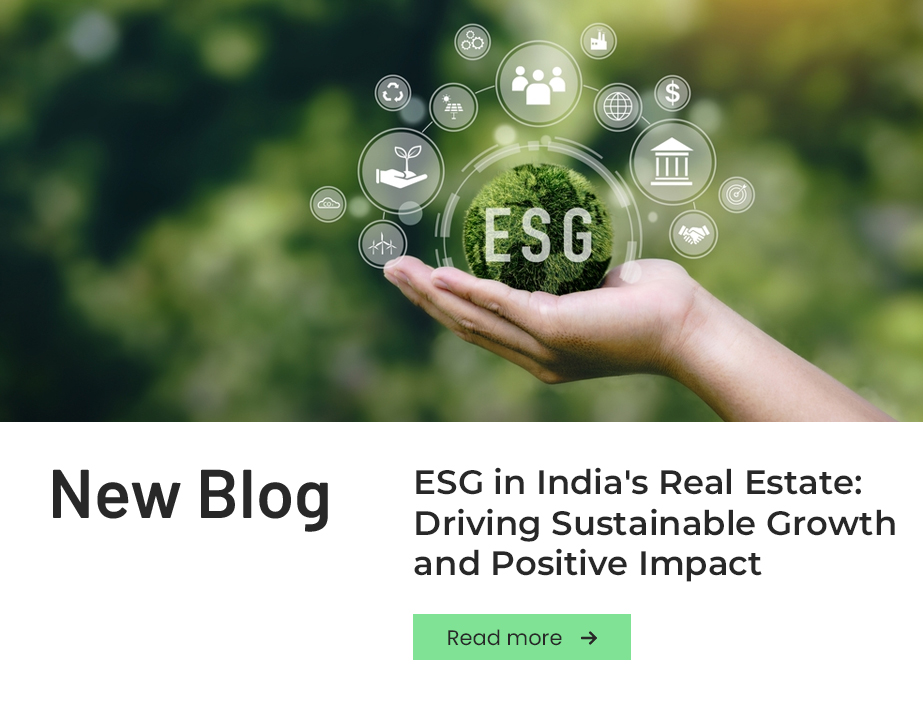In recent years, the global real estate sector has witnessed a paradigm shift in its approach to sustainability, with the growing recognition of the Environmental, Social, and Governance (ESG) factors. Environmental, Social, and Governance (ESG) standards have emerged as crucial factors for analyzing the long-term viability and ethical practice’s of businesses in a variety of industries, including real estate. In India the real estate sector is also embracing this transformative concept, understanding its importance not just from an environmental perspective but also as a key driver of long-term value, financial performance, and social impact. The Real Estate Executive Management Program, we focus on understanding ESG in Indian real estate sector and the positive impact it can have on society, the environment, and businesses.
- Recognizing the ESG Advantage: Environmental, Social, and Governance (ESG), as a part of corporate culture, is gaining prominence in the real estate business as with so many other businesses. For professionals in the real estate industry, understanding the ESG advantage is crucial. ESG investing integrates non-financial factors, such as carbon footprint, community engagement, and ethical governance, into investment strategies. By incorporating these factors, investors can identify organizations and properties that are better positioned to weather environmental and social issues, ultimately resulting in long-term value.
- Enhancing Resilience and Risk Management: ESG-focused real estate investments enhance portfolio resilience by mitigating risks associated with climate change, regulatory shifts, and community relations. Properties with sustainable qualities and strong community links are better equipped to adapt to changing market dynamics, offering a buffer against possible financial losses.
- Attracting Responsible Capital: In 2023, there has been a major shift in investor perception, with an increase in demand for sustainable investment choices. Professionals in the real estate sector who prioritize ESG initiatives stand to attract responsible capital from institutional investors, pension funds, and individuals seeking to align their investments with their values. This influx of capital can open new opportunities for development and expansion.
- Driving Innovation and Efficiency: Adopting ESG principles drives professionals to seek innovative solutions and operational efficiencies. Incorporating sustainable solutions, from green construction practises to energy-efficient technology, not only reduces environmental impact but also lowers operating costs over time, improving asset performance and returns.
- Fostering Positive Stakeholder Relations: A focus on ESG investing generates positive stakeholder connections, benefiting professionals in the real estate sector in various ways. Strong community relations and sustainable development projects can garner support from local authorities, residents, and businesses, streamlining project approvals and reducing potential obstacles.
ESG in the Indian real estate sector is not just an option; it has become an imperative for fostering sustainable growth, social impact, and long-term value creation. Adopting environmentally conscious practices, prioritising social responsibility, and adhering to transparent governance benefits not just the planet and society but also opens up new prospects for businesses. By leveraging the power of ESG, real estate professionals can position themselves at the forefront of the industry’s transformation and drive positive change on both financial and societal fronts.

